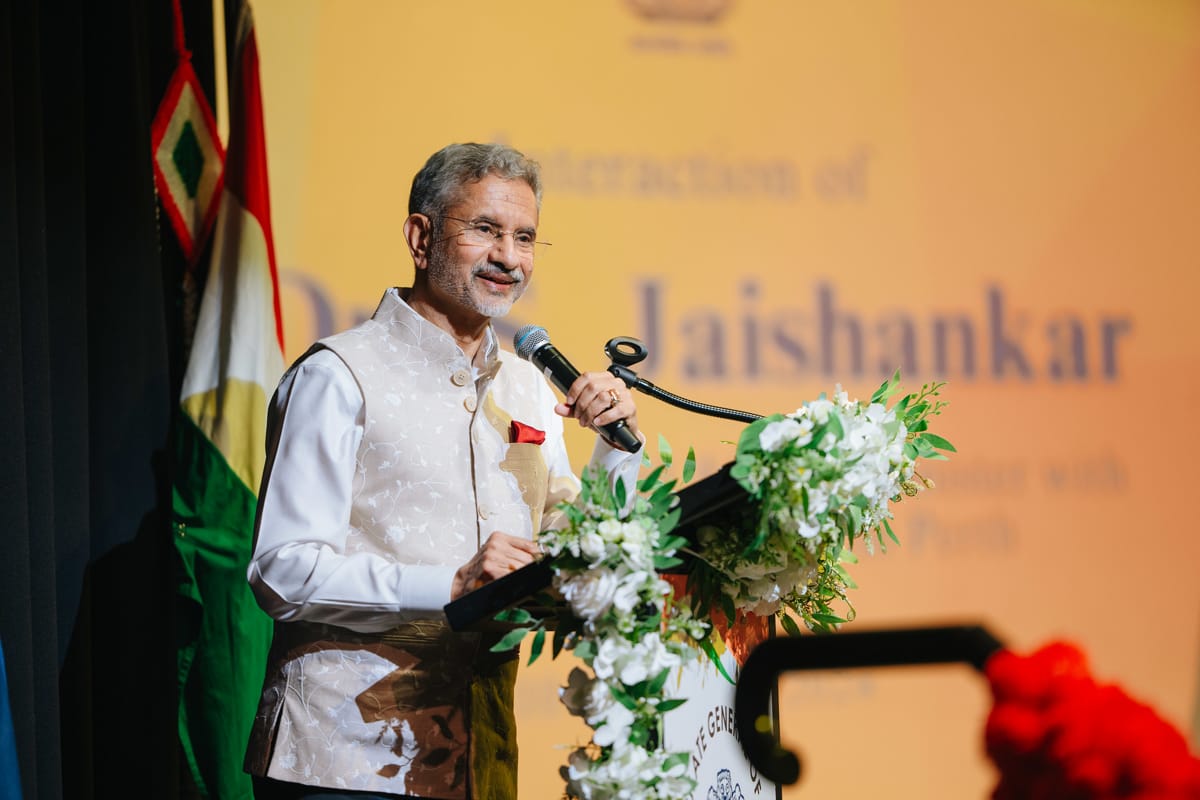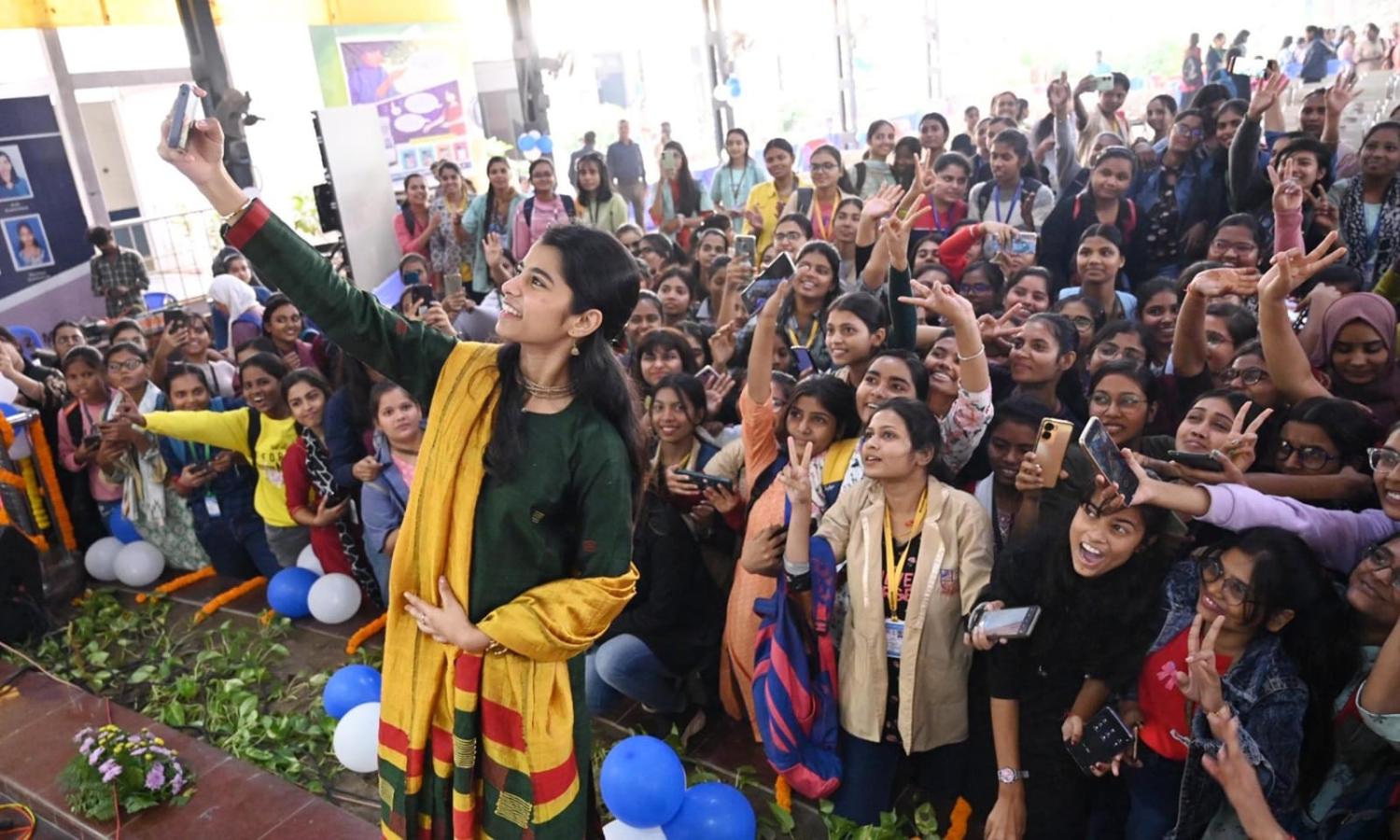In India’s election this year, younger voters aged 18-35 will comprise the largest voting bloc, in what is expected to amount to the highest youth participation ever. Reaching this group has become critical for all political parties, and Indian foreign policy has emerged as a polling issue in the eyes of these voters.
The ruling BJP has shown the most interest in cultivating the youth demographic. That follows success in the 2019 Lok Sabha elections, where 40 per cent of voters aged 18-35 backed the party. Among these, first-time voters accounted for 68 per cent, making youth support a vital factor in the BJP election strategy. Similar campaigns are already evident this year in the run-up to the April and May poll.
The debate over Indian foreign policy has shifted during the Modi years, having once been the purview of elite circles to a subject of everyday primetime debate. This is not only through traditional news outlets debating India’s place in the world – the social media revolution has made content easily accessible to the youth even in the remotest parts of the country. This was visible when India chaired the G20 last year through the government’s G20 Jan Bhagidari movement (People’s participation) and the G20 University Connect initiative, reaching out to 50 million young people from schools and skills centres and 100,000 students from 101 universities across India.
Prime Minister Narendra Modi also shifted diplomatic meetings to venues outside the capital to cities across the country in a bid to connect with larger audiences and make foreign policy a dinner table conversation.
Institutions such as the Ministry of External Affairs have become more active offline and online, but political personalities represent the success of India’s foreign policy in the public imagination. Subrahmanyam Jaishankar, India’s Minister for External Affairs, has adopted a high profile and sought to reach different segments of youth demographic through podcasts, interviews, and seminars. His short clips explaining India’s position on global issues or responding to criticism are popular on Indian social media, resonating with India’s younger voters.

When chairing the G20 sessions, Modi chose to display “Bharat” as another name for India on the official placard before him, seeking to connect with a rural population moving beyond the urban elite. In a poll conducted by India Today, 50 per cent supported the adoption of the Bharat name. In a recent survey conducted by Lokniti on first time-voters in Delhi, 19 per cent attributed their liking for Modi to India’s image at the international level more so than the success of foreign policy institutions.
Many younger Indians feel a sense of pride in the success of Indian diplomacy. In a Pew survey last year, 68 per cent agreed that India’s influence is growing stronger in the world. The connection appears different for urban and rural populations: the former is attracted by the image of India rising along with its economic prospects, the latter by the assertion of culture.
India’s foreign policy under Modi appears to resonate with younger voters as having shared characteristics – risk-taking and aspirational. While enunciating change in Indian foreign policy, Jaishankar said that “We need to take risks; without taking risks, you can’t get ahead”, and called out “double standards” of Western partners. This shift can be seen in India sticking to its neutral position on Russia and continued relations with the Myanmar junta, approved of by 80 and 74 per cent of young respondents, respectively.
Indian foreign policy is presented under the slogan of Vasudhaiva Kutumbakam (the world is one family). Modi has portrayed India as a Vishwamitra – peacemaker, trusted manufacturing alternative, and voice of the Global South. India’s efforts to develop good relations with the United States and Russia simultaneously has
The YouGov-Mint-CPR Millennial survey conducted in December 2023 shows high satisfaction with the government’s handling of diplomacy. Another foreign policy survey by ORF shows that 83 per cent of youth approve of the current government’s foreign policy, marking a six per cent and 11 per cent increase from 2022 and 2021.
Today, India’s youth acknowledge the country’s increasing foreign policy heft and deft. India’s bid for a UN Security Council permanent seat has 88 per cent support among young people. Foreign policy success is acknowledged – for example, the recent release by Qatar of eight former Indian navy personnel accused of spying was seen as a huge success for Indian diplomacy.
But with this support will come an expectation for the youth to have a greater say not only in responding to India’s foreign policy but to actively participate in and influence decision-making. The government needs to be ready for younger Indians, as they become more aware and vocal about India’s place in the world, to play a vital role in shaping foreign policy.

